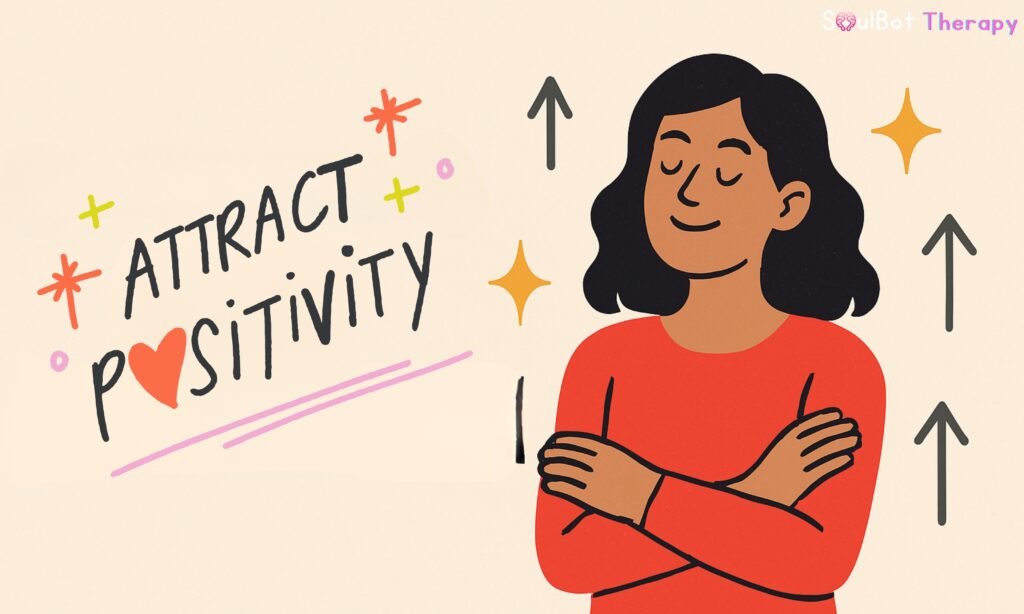If you’ve been feeling anxious, stuck, or just unsure how to deal with your thoughts, therapy can be a game-changer. But with so many types out there, choosing the right one can get confusing. One of the most common dilemmas is choosing between ACT vs CBT. So what’s the real difference between them—and how do you know which one might work better for you?
Let’s talk it through—no fluff, no psychology degree required.
💬 Get support in your pocket. Try our Free AI Therapy Assistant to learn CBT and ACT tools you can apply today.What Is CBT (Cognitive Behavioral Therapy)?
CBT, or Cognitive Behavioral Therapy, is one of the most well-known types of talk therapy. The idea is simple: your thoughts, feelings, and actions are all connected. If your thinking goes negative, your emotions and behaviours often follow.
So, CBT helps you notice those unhelpful thoughts and reframe them.
🧠 Real-life moment: Say you mess up a project at work. You think, “I’m such a failure.” CBT, on the other hand, helps you pause, challenge that thought, and instead replace it with something more constructive, such as, “I made a mistake, but I’m learning from it.”
Meanwhile, when comparing CBT and ACT, CBT often begins with thought-based interventions. In contrast, ACT takes a different approach. Notably, CBT remains structured, goal-oriented, and practical—much like a mental workout plan.
What Is ACT (Acceptance and Commitment Therapy)?
ACT, or Acceptance and Commitment Therapy, takes a gentler approach. It doesn’t try to change your thoughts. Instead, it teaches you to stop fighting them and focus on what matters to you.
You learn to sit with uncomfortable emotions—without letting them run the show.
Curious about how mental health impacts your everyday life? Check out this article.
🧠 A personal example: You have the thought, “I’m not good enough.” ACT doesn’t tell you to argue with it. It helps you recognize it as just a thought—not the truth—and shift your energy toward things that bring meaning to your life, like creating art or being present with your kids.
In the ACT vs CBT comparison, ACT leans more toward awareness, mindfulness, and values.
So, When Might CBT Work Best?
CBT could be a great fit if:
- You like logic and step-by-step strategies
- You want tools to manage panic attacks or overthinking
- You enjoy journaling, worksheets, and tracking progress
- You want to shift specific unhelpful ideas
When comparing CBT vs ACT, CBT is like having a mental toolbox you can use at any time.
💡Fact: According to the American Psychological Association, CBT is one of the most effective treatments for anxiety and depression.
And When Might ACT Be the Right Move?
ACT might click with you if:
- You’re tired of trying to “fix” your thoughts
- You want to be more in touch with your values
- You like mindfulness or want to explore it
- You’re ready to sit with your feelings instead of running from them
In the ACT therapy vs. CBT debate, ACT helps you move through life with more grace—even when it’s messy.
Can You Mix CBT and ACT? Absolutely.
Many therapists actually blend both. You might use CBT techniques to reframe harsh thoughts on tough days and ACT techniques to help you stay grounded and live meaningfully, no matter what your mind throws at you.
A combined CBT and ACT approach is becoming more common. It can be tailored to suit a person’s personality and healing style.

Final Thoughts: You Don’t Have to Pick Just One
Here’s the truth: ACT vs CBT isn’t about choosing a winner. They’re two different paths to feeling better. One gives you tools to rewire your thoughts. The other gives you space to feel them without worry.
Whichever path you take—or if you use a little of both—the intent is the same: feeling more at peace, more in control, and more like yourself. And that’s what matters.
🧠Feeling overwhelmed? Let SoulBot, your AI Mental Health Companion, help you examine what ACT or CBT approach suits your needs.FAQs
1. What is the most significant difference between ACT and CBT?
CBT works to change your thoughts. ACT helps you accept them and take action based on what matters to you.
2. Is one better than the other?
Not really. It relies on what feels right for you. Some folks need structure (CBT), while others want better emotional freedom (ACT).
3. Can I try both ACT & CBT?
Absolutely. Many therapists use a combined approach—CBT and ACT can work beautifully together.
4. Which one helps more with anxiety?
Both are effective. CBT gives you tools to manage spiralling thoughts, while ACT helps you ride out anxious feelings with acceptance.
5. Do I need a therapist to start ACT or CBT?
It helps, but plenty of workbooks and apps let you explore either one independently.




